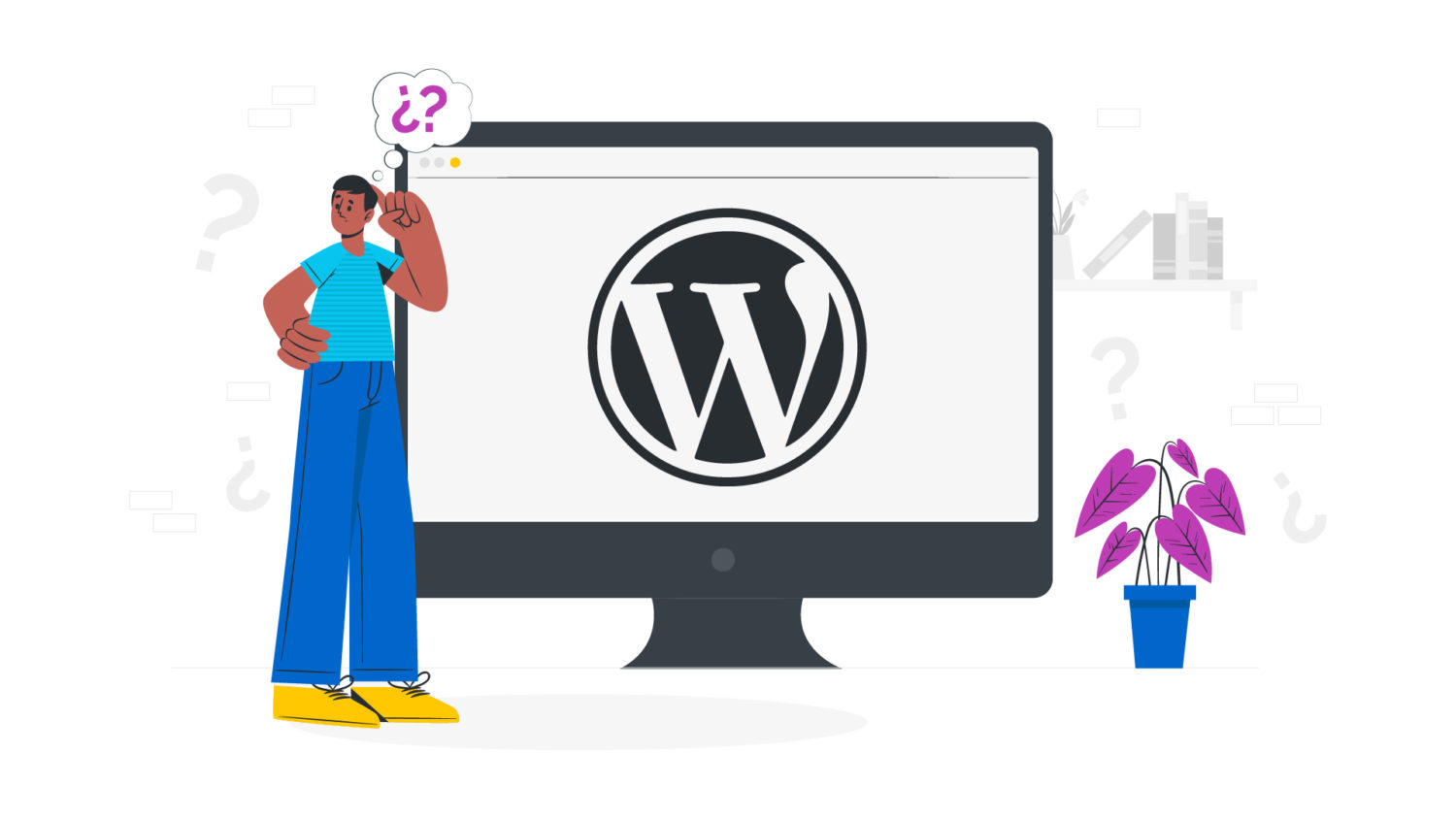How can we help?

Please get in touch using the form below.

WordPress is the world’s leading content management system or CMS – which is essentially a website’s operating system.
4 minute read
WordPress is the world’s leading content management system (CMS), with a 53.7% share of the global website market. The second most popular platform is Joomla, with a 4.8% market share, followed by Drupal with 3.8%.
All websites need to be powered by a content management system. Of course, you should avoid niche or bespoke systems, but which platform you opt for will depend on the needs of your business.
It’s also important to note that WordPress has two different offerings:
We compare the two offerings here: WordPress vs WordPress
At a fundamental level, WordPress is completely free, until you want all the bells, whistles and expertise that make a great site. For example, if you’re going to connect a domain (a unique URL), an SSL certificate, add a theme, some plugins and hosting, these will all come with their own individual pricing. Plus, if you’re looking for someone to make sure it’s all technically sound, they’ll also have an hourly rate. Or you can partner with an agency who can design, develop and host your site without you having to worry.
WordPress is open to developers all over the world who are involved in its development and maintenance. As a result, new features are being built all the time, which means it’s easy to keep your website on-trend.
A common misconception about WordPress is that it’s insecure. This is incorrect. As the number one platform globally, WordPress is worked on by some of the most talented developers who are continuously rolling out updates that strengthen the platform’s vulnerabilities. We recently wrote an article explaining more about the security of WordPress.
One of the most significant benefits of WordPress for business owners and marketers is that you are never wedded to any one partner/provider. Therefore, if one agency designs your website, and then you bring on another to maintain and upgrade it at a later date – there’s no conflict in doing so. Not only does this save face with the agency that initially developed your website, but it also means you can get continued support without having to re-platform.
As the end-user, you want whichever platform you choose to make it easy for you to use, create and add new content. With WordPress, it’s very intuitive. Some simple training can make it an effortless process, giving your team the power to create and publish changes in a flash.
Unlike some other platforms, everything with WordPress is fully responsive. This means that regardless of the device, your visitors will get a fully optimised experience.
With WordPress, you can get a free SEO plugin called oast, which adds an SEO component to every page, scoring you from red to green based on a series of actions surrounding your keywords. It’s a great tool that allows you to customise your Meta Data and ensure each page is optimised for SEO.
The biggest pitfall when it comes to WordPress is that there are many DIYers out there, with limited experience, who mock-up a basic site and then sell it at a high profit. Unfortunately, these sites are often poorly designed and riddled with technical faults. The best advice we can give you is to ask questions.
To help businesses make a more informed decision about which CMS is best for them, we’ve written some comparison articles comparing WordPress to its biggest market contenders:


Our friendly team of designers, developers and digital specialists are ready and waiting to help with your website project.